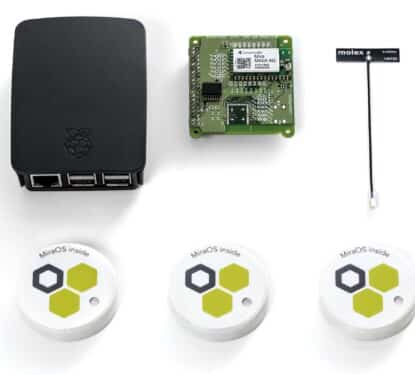Two years ago, Facebook CEO Mark Zuckerberg took the stage at the Mobile World Congress to stress that connecting the rest of the world to the Internet was a higher priority than developing 5G, the next step in mobile data connectivity. It seems that no one really listened and here comes 5G!
This year’s Mobile World Congress in Barcelona was all about 5G and how it can change the the way we use data. Many may ask what all the fuss is about, the switch from 3G to 4G was good but only in that it made what we already do much easier and faster. We browsed the internet, we watched videos, we made VoIP calls with 3G and we did it all more comfortably.
However, experts say that our move from 4G to 5G will have a much wider, game-changing impact on the world. Since the rollout of 4G in 2009/10, and even since Zuckerberg’s 2016 speech, the number of connected devices has increased at an extraordinary pace due to the growth of the Internet of Things (IoT).
Mark Hung, an analyst at Gartner, pointed out that while 3G brought web browsing and data communication to the smartphone, 4G greatly enhanced it. And even though towers today can support hundreds or thousands of devices, 5G could help scale the Internet of Things from “hundreds and thousands to hundreds of thousands.”
According to many, the advent of 5G is the technical development needed to facilitate the growth of smart cities and all they promise. “The next generation of wireless network infrastructure will be built using small-cell networks employing 5G wireless technology. The connectivity and computing capacity unleashed by these high-speed wireless networks will bring the power of Smart City solutions to municipalities across the country,” starts a recent Accenture report.
It is the big mobile providers in the US - Verizon, T-Mobile and Sprint - that will be trialing the technology during 2018. New York, Las Vegas, Sacramento and Atlanta have been chosen to test 5G in selected areas of their increasingly smart cities. With 5G, a city can improve “all sorts of variables across its many areas of interest, be it parking meters, traffic flow, where people are, security issues,” said Ron Marquardt, VP of technology at Sprint.
Verizon is also trialing 5G in stadiums. “The amount of usage of data during sporting events and concerts is only growing. We see that every year during the Super Bowl, for example,” said Lani Ingram, Verizon’s VP for smart communities, sports and IoT platforms, who added that 5G could also be put to good use in airports, convention centers and other venues where people and their mobile devices congregate.

As we know, it’s not just people and phones that require connectivity. Smart devices that will vastly outnumber human populations are concentrated in smart buildings and key infrastructure. As we discussed in our article What’s a Smart City Without Connected Smart Buildings? our buildings are perhaps the most important element of a city. They make a city a city.
According to Christine Boles, Director of Smart Building Solutions, Internet of Things Group (IoTG) at the Intel Corporation, “5G connectivity allows for more advanced data exchange between smart buildings that will be a major part of the groundwork for smart cities of the future.” While by gathering data from buildings, 5G can also help cities understand patterns in electricity usage, resulting in reduced power consumption across the smart grid.
The overall economic benefit of the introduction of 5G on smart technology is huge. According to the Accenture report, smart technology and 5G in a reletively small city of around 30,000 residents could see a $10 million impact on the electricity grid and transportation infrastructure. A medium sized city of 118,000 could see $70 million. While, a large urban area like Chicago, could see an economic impact of around $5 billion.
“The evolution of 5G wireless technology, which will create the advanced infrastructure needed for Smart Cities, has reached a very promising juncture – yet also a critical one,” the accenture report conclude. “To reach its full potential, and unlock the full benefits of Smart Cities, communities now need to support small-cell deployments to enable a 5th generation of communications infrastructure.”
[contact-form-7 id="3204" title="memoori-newsletter"]



